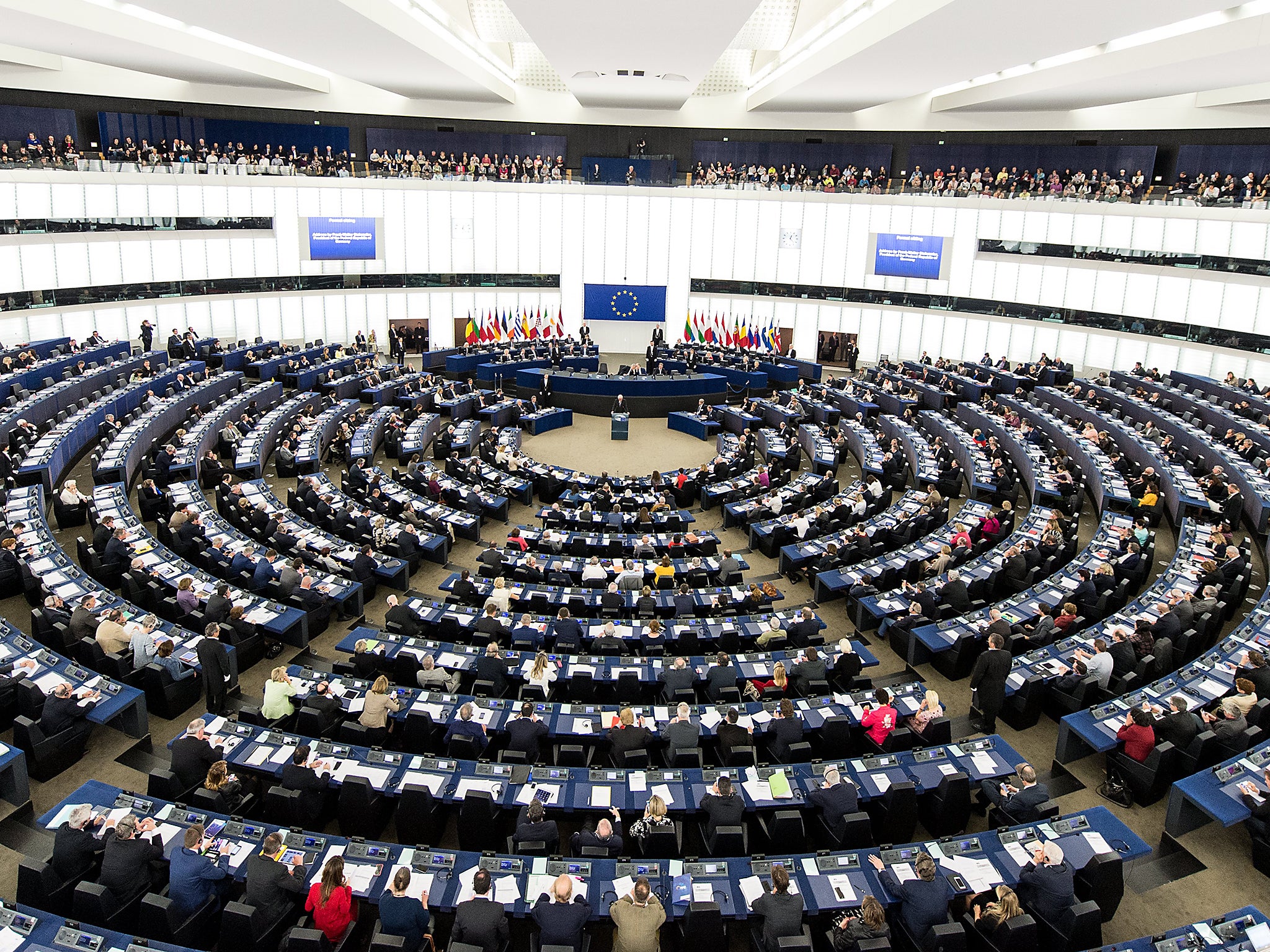Boris Johnson warned that violent Brexit rhetoric risks undermining EU talks and ruining Britain's reputation
Exclusive: Foreign Secretary asked to reject 'language of war and conflict' and 'lead by example'
Your support helps us to tell the story
From reproductive rights to climate change to Big Tech, The Independent is on the ground when the story is developing. Whether it's investigating the financials of Elon Musk's pro-Trump PAC or producing our latest documentary, 'The A Word', which shines a light on the American women fighting for reproductive rights, we know how important it is to parse out the facts from the messaging.
At such a critical moment in US history, we need reporters on the ground. Your donation allows us to keep sending journalists to speak to both sides of the story.
The Independent is trusted by Americans across the entire political spectrum. And unlike many other quality news outlets, we choose not to lock Americans out of our reporting and analysis with paywalls. We believe quality journalism should be available to everyone, paid for by those who can afford it.
Your support makes all the difference.A cross-party group of British MEPs has warned Boris Johnson that he and other Brexiteers risk undermining negotiations with the EU and ruining Britain’s image abroad with their repeated use of violent war imagery when talking about Brexit.
The Foreign Secretary has been sent a letter, seen by The Independent, from 20 British MEPs in six different parties, including Mr Johnson’s own. They argue that the casual use of the language of “war and conflict” to describe talks with the UK’s allies is “dangerous”, undermines negotiations and does “not promote an image of a deep and special relationship, but a hostile one”.
Criticising “the language used by many senior politicians and much of the press”, the MEPs single out “terms such as ‘war cabinet’, ‘punishment’, ‘demands’, ‘blackmail’ and similar” – some of which have been used by the Foreign Secretary himself.
“In the last week utterly inappropriate terms such as ‘weaponising’, ‘annexing’ and ‘provocation’ have been widely used in relation to the draft exit treaty and its proposed protocol on the border between Ireland and Northern Ireland,” they wrote.
“Aside from the extremely questionable morality of the use of such terms, they also serve to damage the UK’s future prospects greatly. Their use is self-defeating in every respect. The prosperity of the UK will be deeply affected by the Article 50 negotiations, and achieving any outcome that minimises the harm of Brexit requires goodwill, patience and trust on all sides.
“The use of inflammatory language undermines any efforts to build such trust, and serves to limit EU27 leaders’ room for manoeuvre with their own electorates. Concessions and compromises cannot be justified in a climate of hostility. Future partnerships are hard to build with those who seek to portray one as the enemy.
“At the same time, there is a danger that the rest of the world is being shown a picture of the UK’s approach that is not the cooperative and pragmatic one they once knew.”
Mr Johnson has repeatedly used warlike imagery and Second World War references when discussing talks, including last year telling EU leaders not to give the UK “punishment beatings” for Brexit “in the manner of some World War Two movie”. He has also accused the EU of “extortion” over the financial settlement.
Other Brexiteers have stepped up the language in recent weeks, with David Jones, a former Brexit minister, suggesting the EU’s plan to solve the Irish border problem amounted to wanting to “annex” the province from Britain.
Mr Johnson has been mostly sidelined in Brexit talks and played little direct role, but his reputation looms large in the EU’s de-facto capital, where he tends to attract derision and bemused pity in equal measure from officials. One quip by Mr Johnson, that the UK could “have its cake and eat it” after Brexit, has entered the unofficial Eurocrat lexicon – with “cake” now meaning an impossible or unreasonable demand, sometimes even in contexts beyond Brexit.
Calling on the Government to “lead by example” and cut out violent language, the MEPs said the Foreign Secretary should “unreservedly condemn this dangerous and harmful use of hostile language”.
Copies of the letter have also been sent to David Davis, the Brexit Secretary, and the UK’s chief diplomat in Brussels.

The MEPs continued: “Much of the world already sees Brexit as a needless act of self-harm that diminishes the UK’s standing in the world. The mantra of a global Britain rings hollow when it is accompanied by needlessly aggressive language directed at our closest partners.
“Finally, this language is dangerous for the UK’s own culture and cohesion. For those millions of EU27 citizens in the UK, including the many married to British citizens, and UK Citizens in the EU that are very far from reassured about their futures, this language is genuinely threatening.
“Many who have made their homes and lives in the UK are already deeply concerned that a hostile environment is developing. Hostile language can only add to the worries and uncertainty for them and for the UK Citizens in the EU27 whose rights are still far from guaranteed.”
The letter of admonishment was signed by Catherine Bearder, a Liberal Democrat MEP; Charles Tannock and Julie Girling, who were elected as Conservatives; Alyn Smith, an SNP MEP; Molly Scott Cato, Keith Taylor and Jean Lambert, Green MEPs, and Jill Evans, from Plaid Cymru.
It was also signed by Labour MEPs Richard Corbett, Seb Dance, Derek Vaughan, John Howarth, Catherine Stihler, Paul Brannen, Theresa Griffin, Mary Honeyball, Jude Kirton-Darling, Clare Moody, Julie Ward and Siôn Simon.

Join our commenting forum
Join thought-provoking conversations, follow other Independent readers and see their replies
Comments